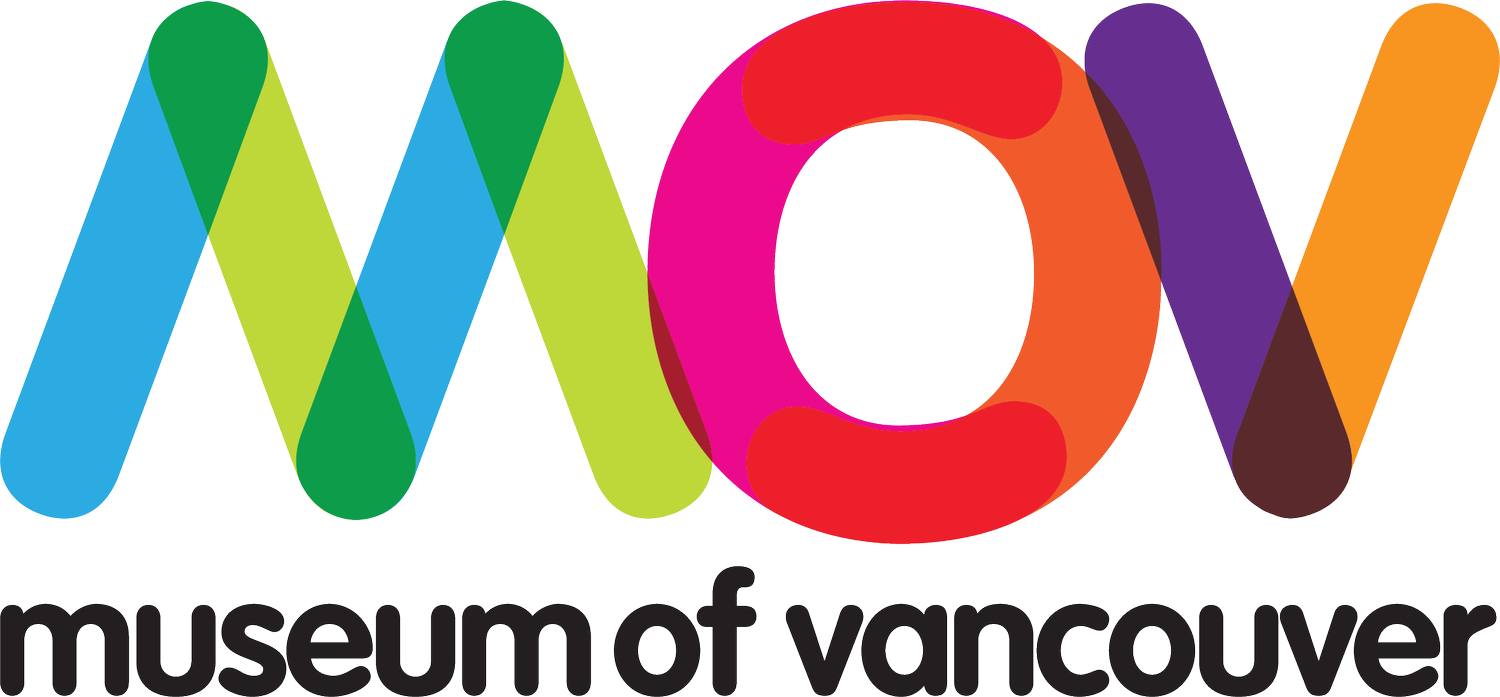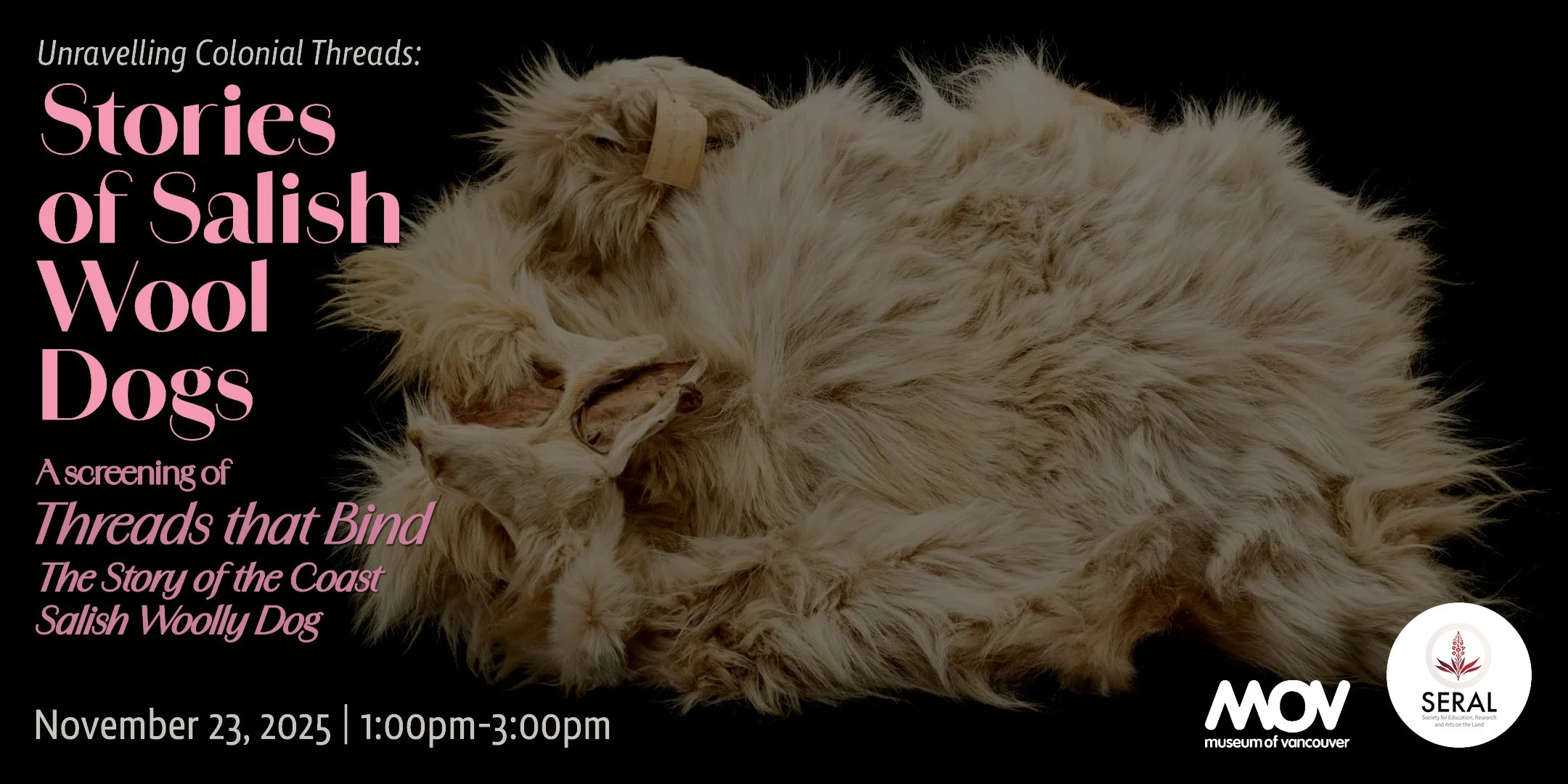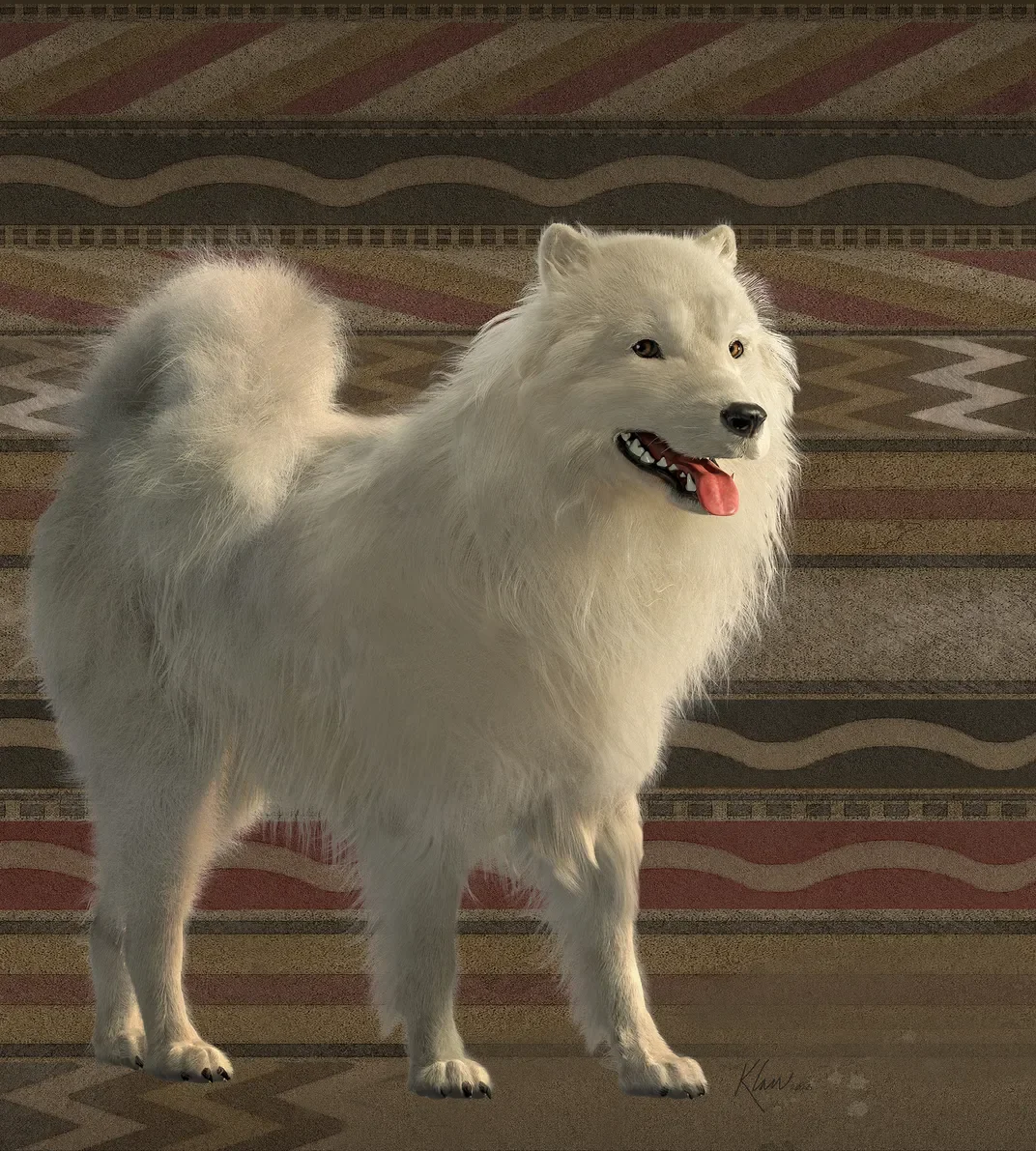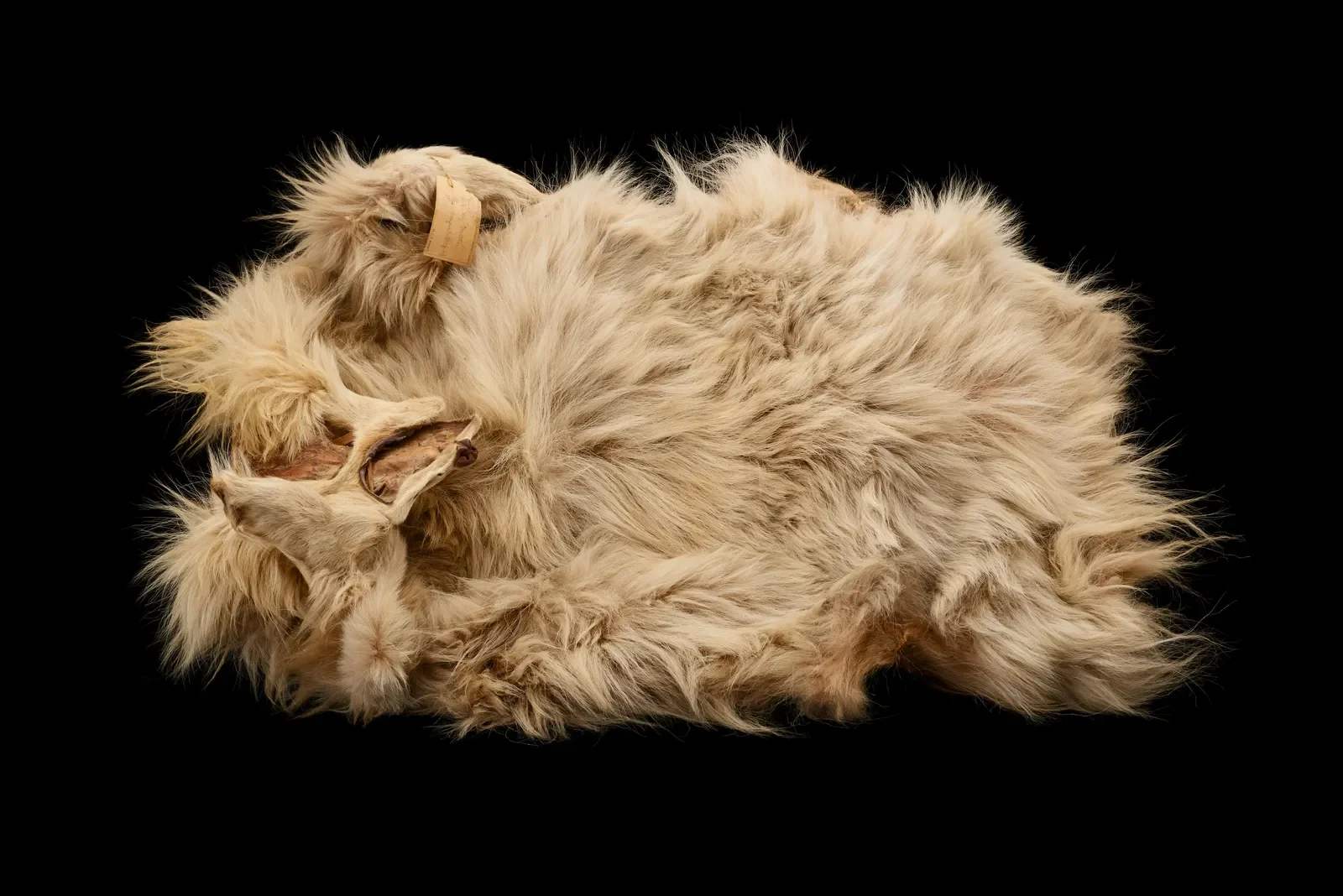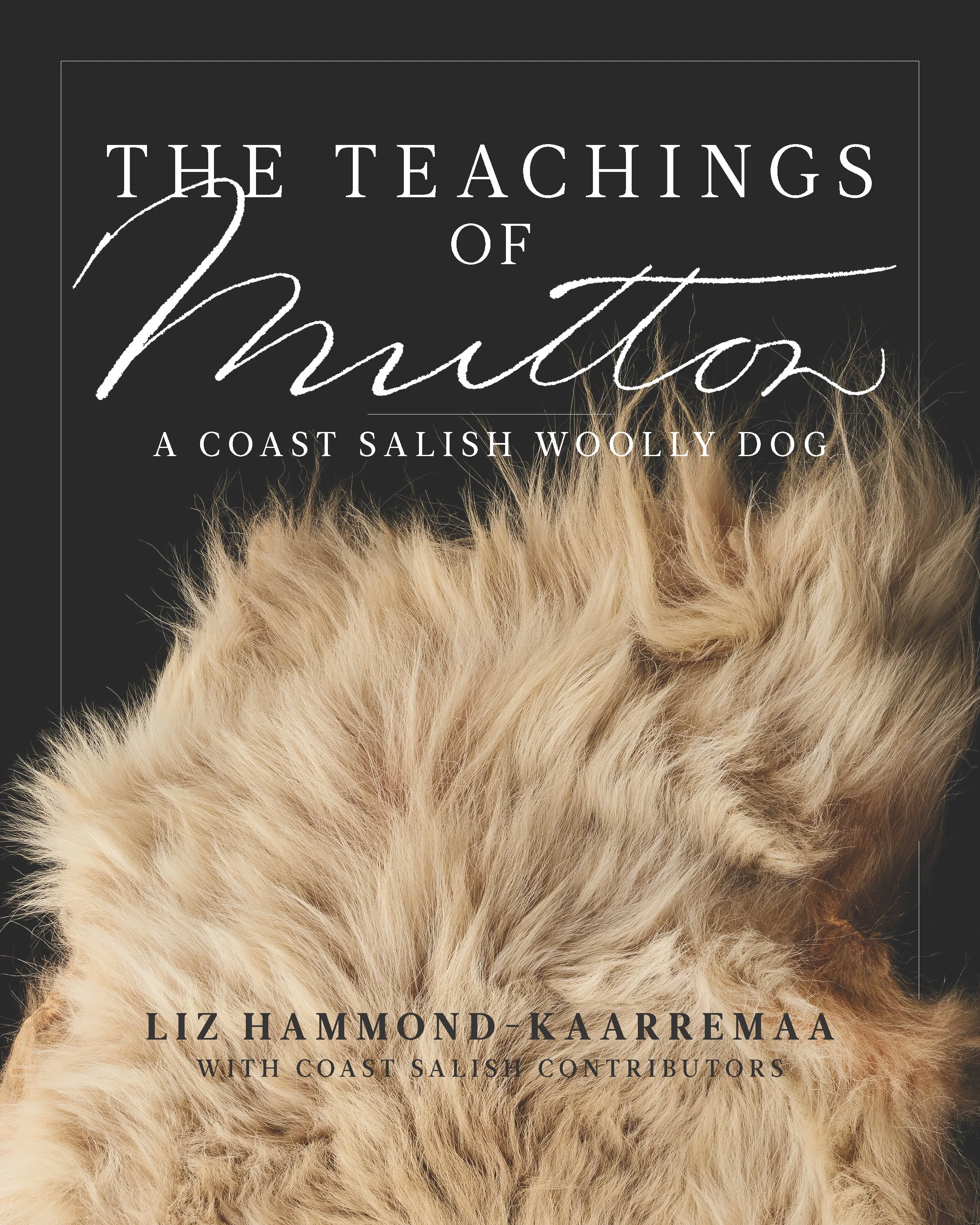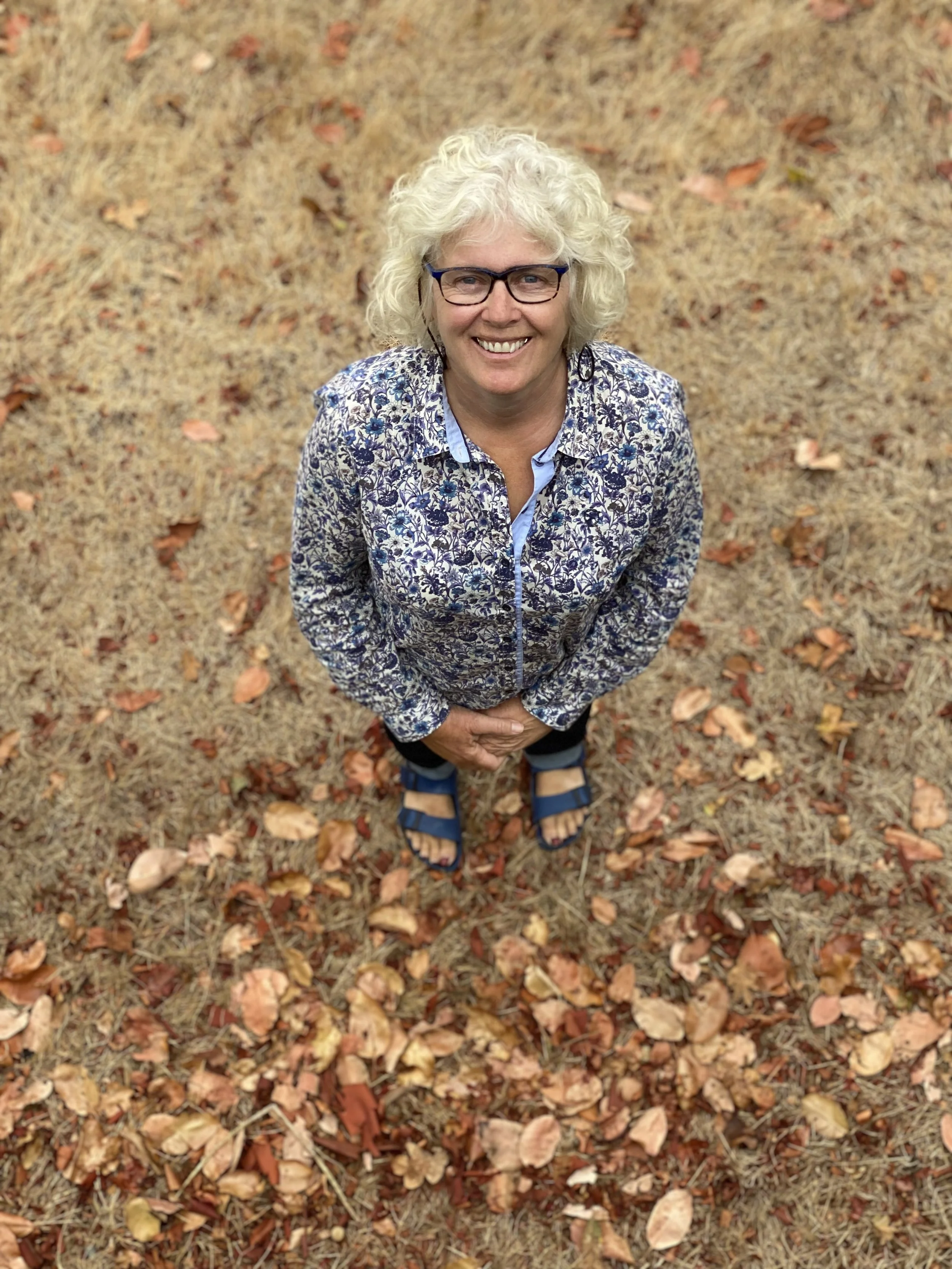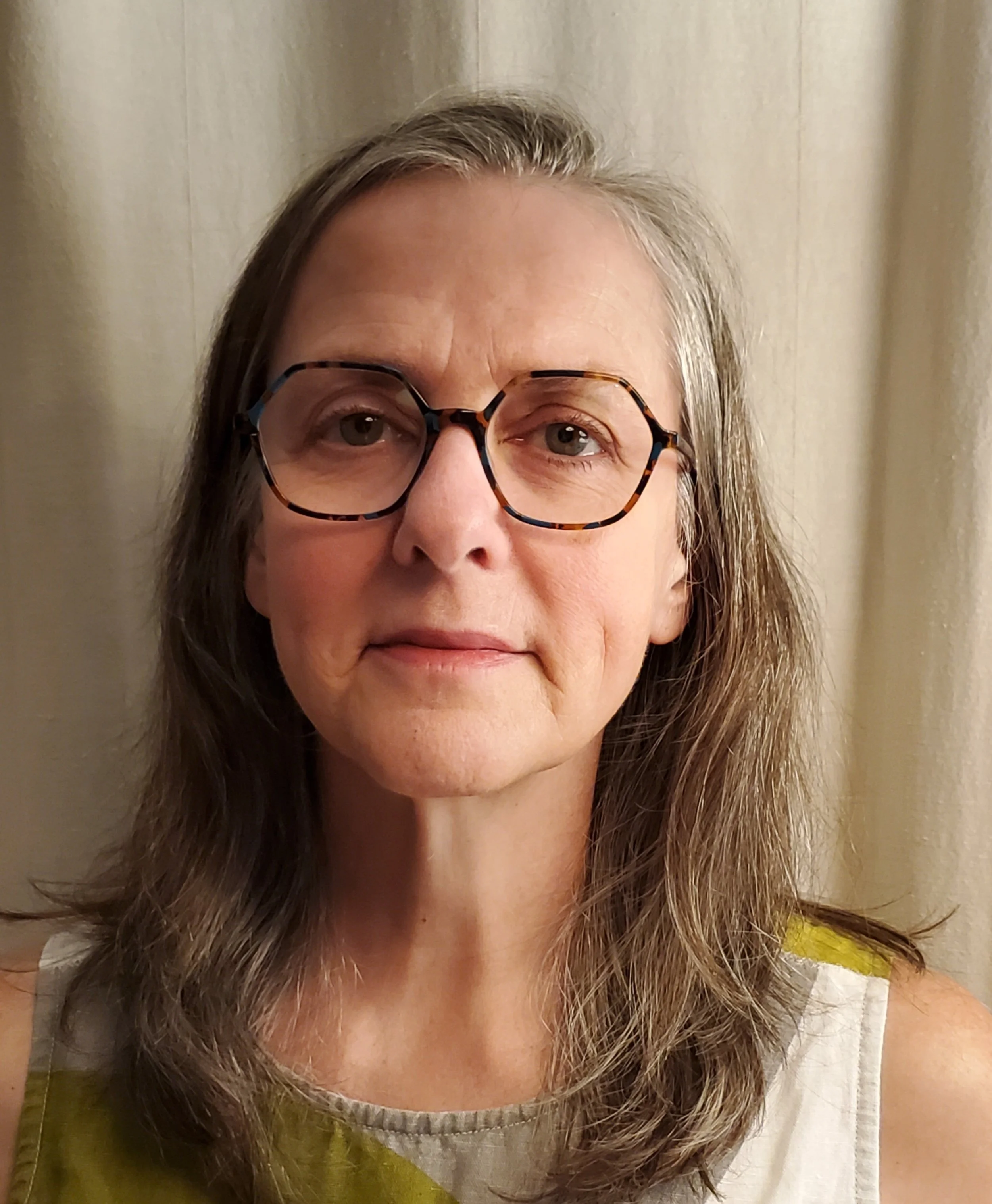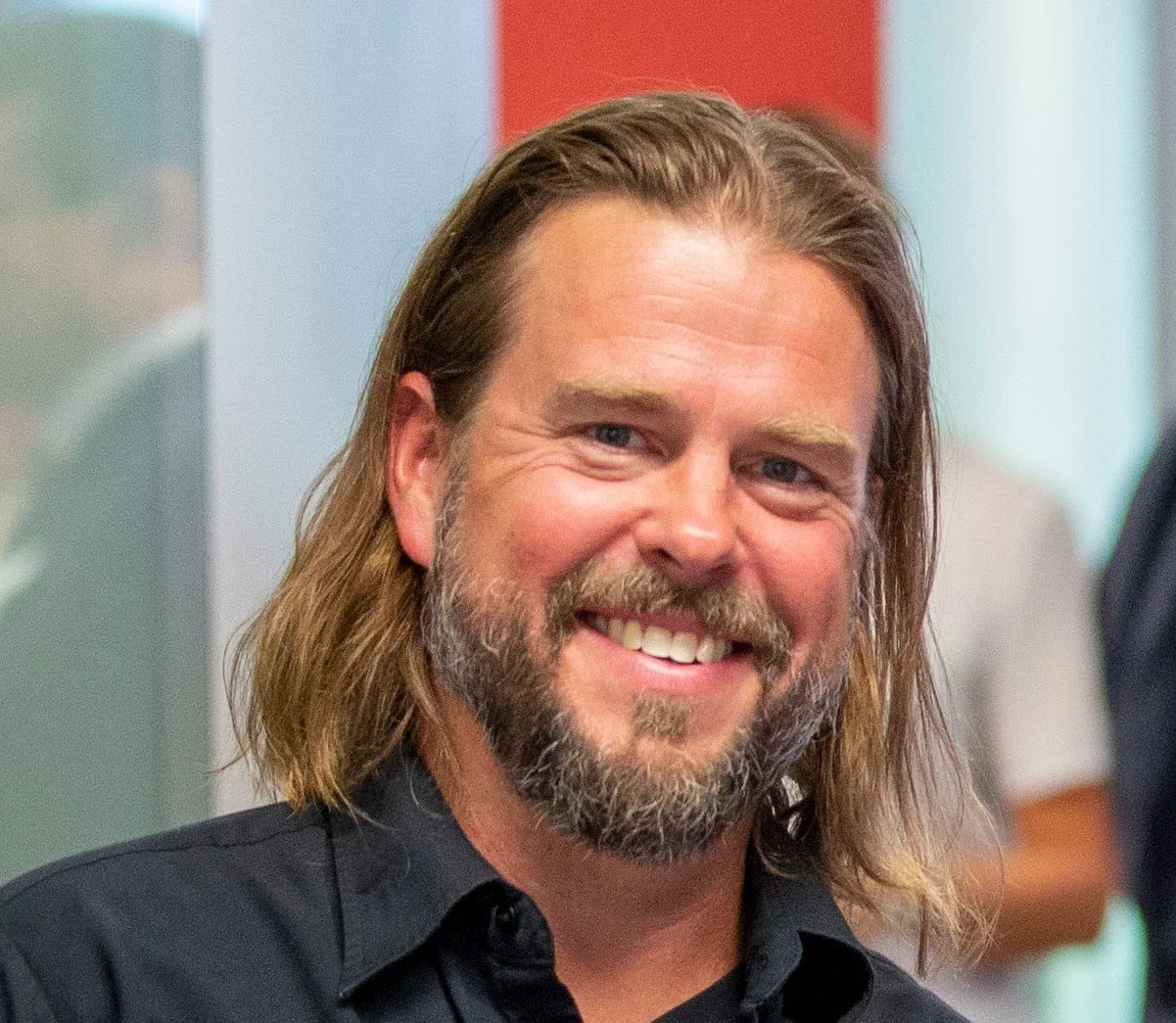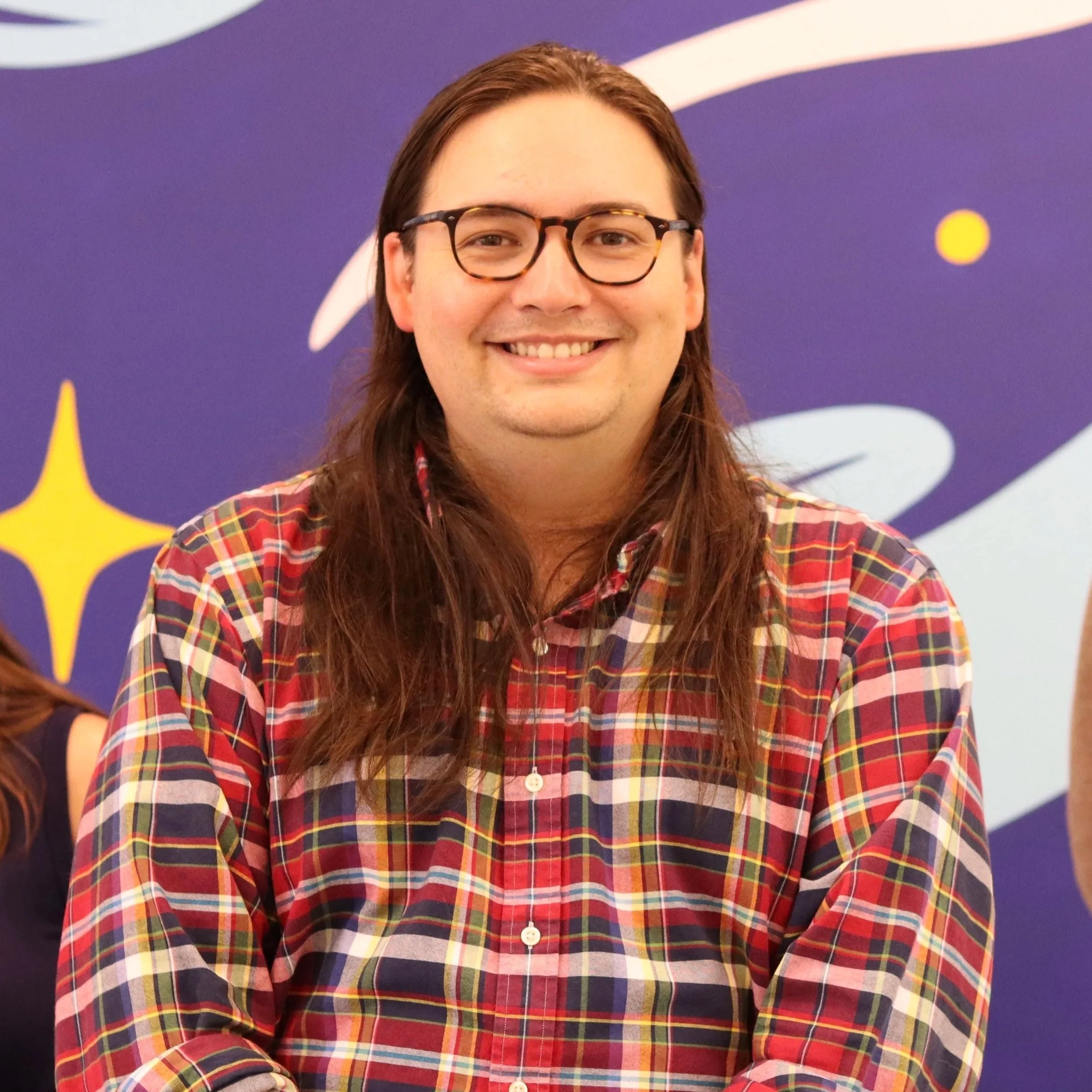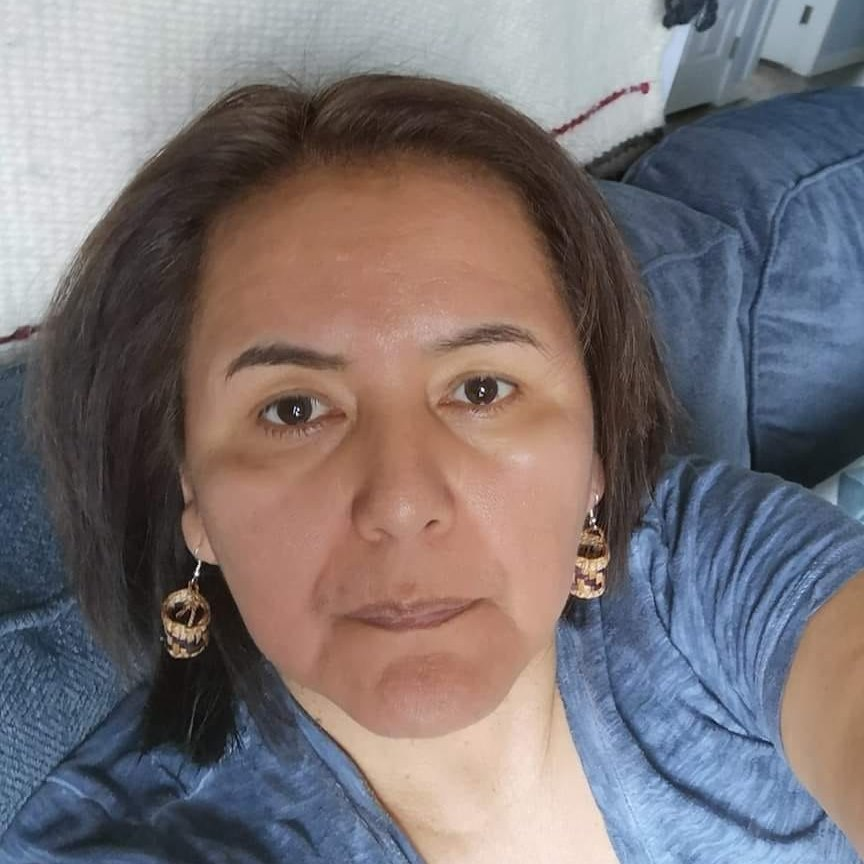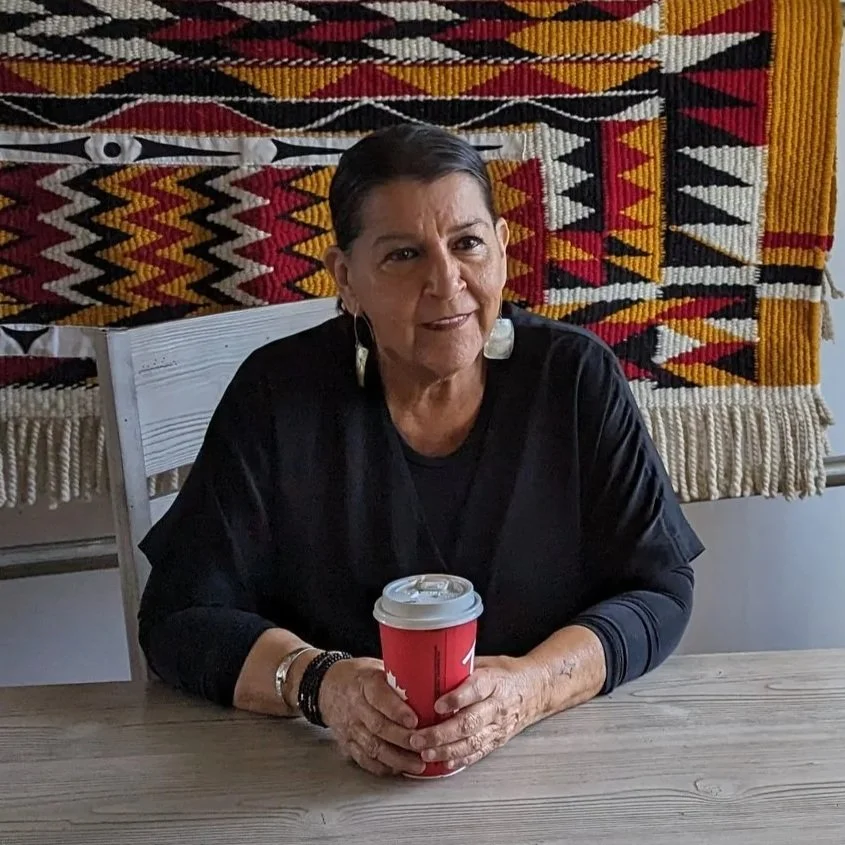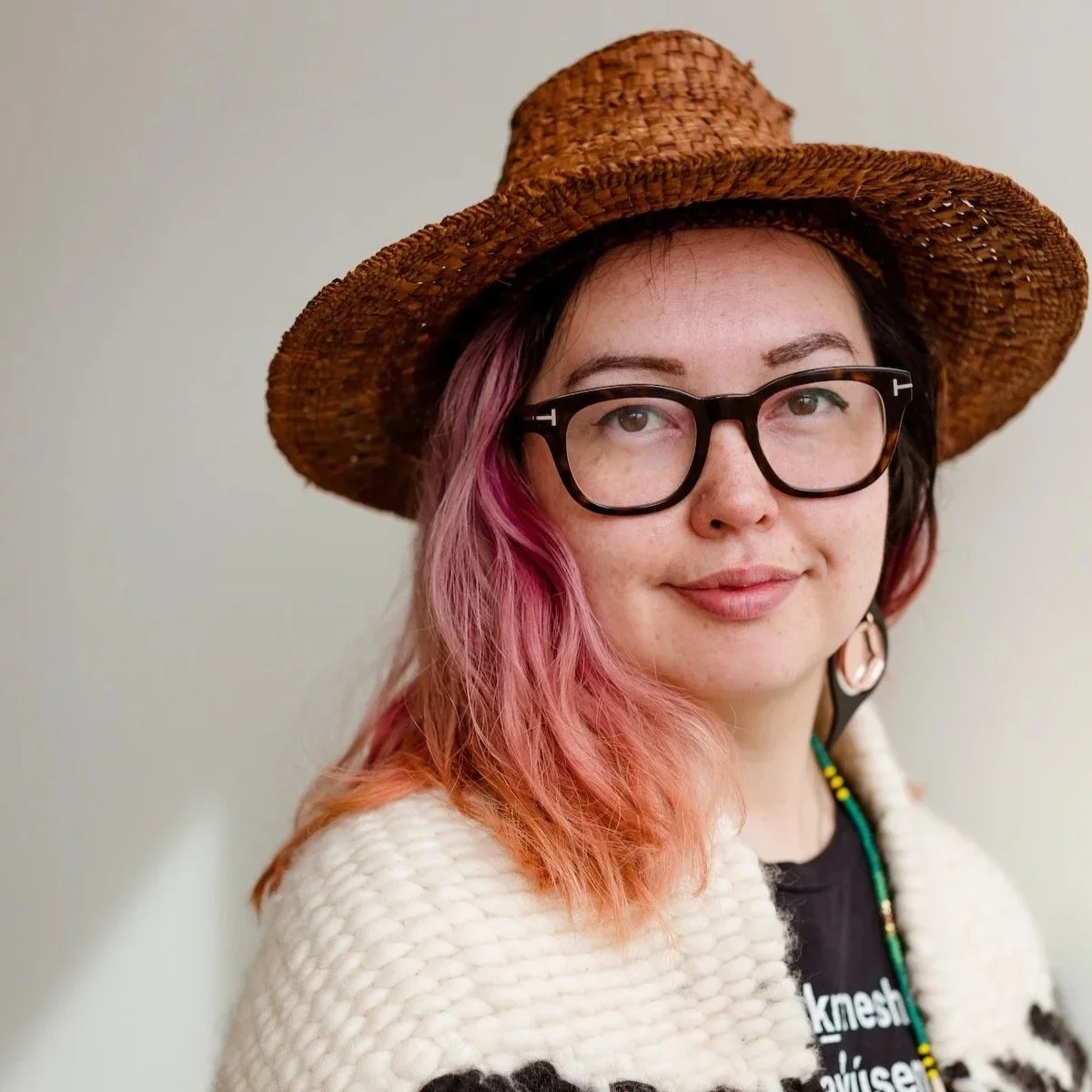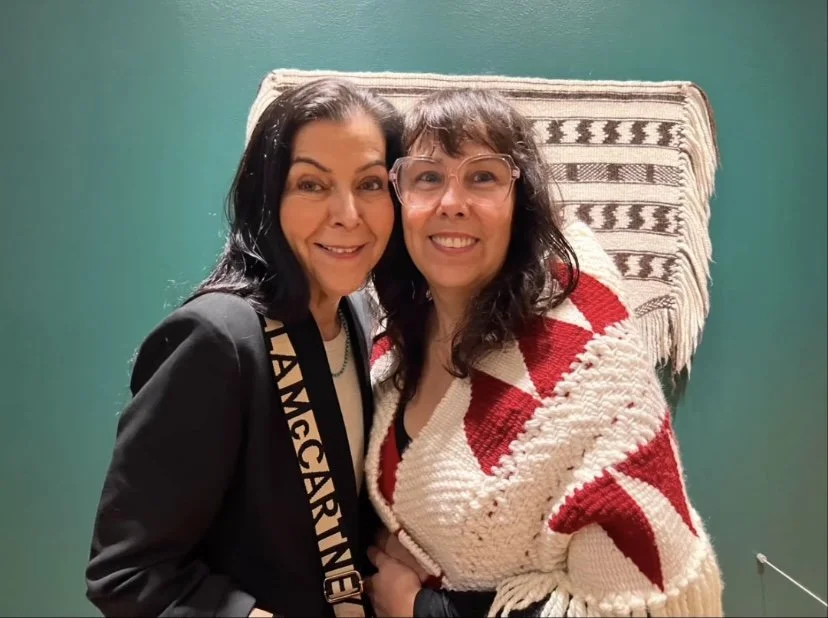Sold out!
Step into the world of the Salish Wool Dog, a small, long-haired dog known by Coast Salish peoples for its wool, an essential part of weaving and cultural traditions. This event highlights Indigenous knowledge through research, storytelling and film.
The event will have the first Canadian public screening of the new short film on the history and legacy of the woolly dog—Threads that Bind: The Story of the Coast Salish Woolly Dog, by Kirk French—as well as a talk with Liz Hammond-Kaarremaa, co-author of the book The Teachings of Mutton: A Coast Salish Woolly Dog.
A panel discussion of Indigenous knowledge keepers and weavers will delve into the cultural role of the woolly dog, the impacts of colonization, and current efforts to share this history.
The Teachings of Mutton: A Coast Salish Woolly Dog books and related items will be available for purchase with a signing to follow.
Date: Sunday, November 23, 2025
Time: 1:00pm-3:00pm
Tickets:
$23 General Admission
Free Indigenous
(plus fees and taxes)
Please note that photos or video may be captured at this event and used for promotional or reporting purposes. If you do not wish to be photographed, please let organizers know.
Thank you for your interest in our event, our waitlist is currently full!
About the Book and Film:
The Teachings of Mutton: A Coast Salish Woolly Dog
Until now, there has been very little written about the enigmatic Coast Salish Woolly Dog, or sqʷəmey̓ in the Hul'q'umi'num language. According to Indigenous Oral Histories of the Pacific Northwest, this small dog was bred for thousands of years for its woolly fibres, which were woven into traditional blankets, robes and regalia. Although the dogs were carefully protected by Coast Salish peoples, by the 1900s, the Woolly Dog had become so rare it is now considered extinct.
Threads that Bind - The Story of the Coast Salish Woolly Dog
Threads that Bind explores the story of the woolly dog—a breed domesticated thousands of years ago by the Coast Salish of the Pacific Northwest, but unfortunately became extinct in the late 1800s. Coast Salish communities cherished the woolly dog for its soft white fur, which they sheared to create intricate textiles central to their culture. Recently, a woolly dog pelt was discovered at the Smithsonian and genetically sequenced, offering new insights into the dog’s origins and its role in Coast Salish heritage. The film was co-produced by Coast Salish Elders, Knowledge Keepers, weavers, the Smithsonian, and the CORVA Studio Lab at Penn State University with the goal of providing a holistic view of the revered woolly dog.
About the Panelists:
Liz Hammond-Kaarremaa (Co-Author)
Liz holds a MA in Educational Technology and a Master Spinners Certificate. Now retired from Vancouver Island University where she held the position of Director of Research Services, she spends much of her time studying Coast Salish textiles. She is a Research Associate with the Smithsonian and with VIU’s Anthropology Department. She has worked with various museums including: the British Museum, Pitt Rivers Museum, the RBCM, the Smithsonian Institution, MoA at UBC and the Burke Museum helping to identify yarns, fibres, tools and techniques used to create textiles. Liz was instrumental in identifying a rare blanket in the Burke Museum confirmed to be made of Woolly Dog hair.
Liz has given many presentations and workshops on the subject of Coast Salish spinning and textiles to Coast Salish spinners and weavers and has written articles on the subject for magazines such as Selvedge, Spin-Off, Ply, BC Studies and the latest one “The History of Coast Salish ‘Woolly Dogs’ Revealed by Ancient Genomics and Indigenous Knowledge” was published in Science. She also reviews books for The British Columbia Review. Her book with Coast Salish contributors The Teaching of Mutton – A Coast Salish Woolly Dog is being published by Harbour Publishing in the Spring of 2025. Liz lives on Protection Island, BC, in Snuneymuxw territory.
Alison Ariss (Moderator and Co-Author)
Alison is a PhD candidate in art history and a Public Scholars Initiative Fellow at UBC. She earned an art history MA at UBC and a BA Honours in anthropology at Waterloo. As a settler, Alison views her research as an (un)learning process that centres Salish weaving knowledge. Alison has volunteer and work experience with public interest research organizations, community arts groups and museums.
Kirk French (Filmmaker)
Kirk French is an Assistant Professor of Anthropology and Film Production/Media Studies at Penn State University. His film projects strictly rely on co-production with the communities he collaborates with. This approach provides a highly effective avenue for sharing anthropological research with the wider academic community and broader public in both an accurate and engaging manner.
His first feature-length documentary, Land and Water Revisited, was nominated for an Emmy in 2021, and took home several awards from international film festivals. He just completed his second film, A Century After Nanook (2025). Both films are available on PBS.
Speakers:
Chepx̲imiya Siyam’ Chief Dr. Janice George
Chief Janice George graduated from Capilano University, North Vancouver, BC, and the Institute of American Indian Arts, Santa Fe, NM. She feels her education at these schools helped her excel as a teacher, adding to her most important traditional teachings. She is a Hereditary Chief, trained museum curator, and educator.
George also co-organized the first Canada Northwest Coast Weavers Gathering with other Squamish Nation weavers. George and Joseph are from prominent Squamish families and have numerous ceremonial and cultural responsibilities in their community. Joseph is the former Director of Squamish Housing and Capital Projects and currently consults on capital projects for Indigenous communities.
Eliot White-Hill, Kwulasultun
Eliot graduated from Vancouver Island University with a Bachelor of Arts and a Master of Fine Arts (MFA) from Emily Carr University. He is a published author and artist, with written works of fiction in the magical realism genre and visual art in traditional Coast Salish style. He sees his work as an artistic extension of his storytelling.
He was awarded two YVR Emerging Artist Scholarships in 2021 and 2022. He is one of five Northwest Coast artists participating in a 2024 exhibition at the American Museum of Natural History (AMNH) in New York City.
Snumithia’ Violet Elliott
Violet is from Snuneymuxw, Stz’uminus, Penelakut, and Cowichan, and now resides in Quamichan, which is in Cowichan. She lives with her Sta’lus, Joe Elliott, her Memuna’, Jeremy Elliott (married to Maria), and their two beautiful daughters, Adelie and Evelie. Her youngest son is Tyrone Elliott, whose fiancée is Jasmine Dionne.
Violet has been weaving for twenty-five years. She has taught hat-weaving and purse-weaving workshops and visits schools to introduce children and youth to the values of cedar-bark gathering. She also enjoys gathering other natural weaving materials and being in the outdoors. Violet has primarily worked in the counselling and facilitation field, teaching the history and impacts of colonization and Indian Residential Schools.
Debra Qwasen Sparrow
Debra Sparrow has been deeply involved with the revival of Musqueam weaving for over thirty years and has spent many years studying, experimenting, and learning directly from the work of her ancestors. Her work has been collected and exhibited nationally and internationally, including at the University of British Columbia, the Canadian Museum of History (previously the Museum of Civilization), the Royal BC Museum, the Vancouver International Airport (YVR Collections), the Burke Museum of Natural History and Culture (Seattle), and the Smithsonian Institution.
She was the recipient of the BC Creative Achievement Award for First Nations Art in 2008. Most recently, she participated in The Fabric of Our Land: Salish Weaving at the Museum of Anthropology at UBC as both an exhibitor and as a regular, active weaving demonstrator using a traditional loom from the museum collection.
Senaqwila Wyss
Senaqwila Wyss is from the Skwxwú7mesh Úxwumixw (Squamish Nation), with Tsimshian, Stó:lō, Hawaiian, and Swiss ancestry. She is an ethnobotanist, warrior entrepreneur, co-owner of Raven and Hummingbird Tea Co., and a weaver. She is also an Indigenous Cultural Programmer at the Museum of North Vancouver (MONOVA), where in May 2023 she coordinated the public presentation of Stém̓xwulh: Woolly Dog Weavings, featuring two rare Salish Woolly Dog ceremonial robes.
In 2021, Senaqwila’s six-part Woolly Wednesday series highlighted Salish perspectives and demystified colonial narratives, bringing forth the beautiful relationship the Salish people have with the Woolly Dog.
Kerrie Charnley
(Kerrie Charnley, right, pictured with Johnna Sparrow.)
Kerrie Charnley is a proud member of the q̓ic̓əy̓ (Katzie) First Nation who are a part of the xʷməθkwəy̓əm (Musqueam), sc̓əwaθen (Tsawwassen), səlil̓ilw̓ətaʔɬ (Tsleil-Waututh), and qʼʷa:n̓ƛʼən̓ (Kwantlen) nations who are all inter-related as the downriver hən̓q̓əmin̓əm̓-speaking Coast Salish family of peoples. Kerrie is an apprentice Coast Salish wool weaver and spinner under the guidance and teaching of Musqueam master weaver Debra Sparrow. Kerrie’s grandmother, Amanda Charnley (né Pierre Family), was a Coast Salish knitter and wool spinner. Dr. Charnley has a PhD in Language and Literacy Education with a focus on Coast Salish family pedagogies and multimodal and land-based literacies from the University of British Columbia. She teaches and does research in the Faculty of Creative and Critical Studies at UBC Okanagan and also teaches students in the four new Interior Salish Language Fluency degrees (Nłeʔkepmx, Nsyilxcn, St’at’imc and Secwepemctsín). Over the past 30 years she has taught courses in Indigenous Education, Literature, Indigenous Health, English, Cultural Studies and Salishan literacies at UBC Vancouver, SFU, and the Institute for Indigenous Governance (NVIT). Dr. Charnley is a grand-niece of Simon Pierre and the great-granddaughter of Peter Pierre (See Jenness, Faith of a Coast Salish Indian, 1956). Simon Pierre was the secretary and translator for the Indigenous Chiefs in British Columbia during the early part of the 20th century and in this role in 1906 he travelled with the Chiefs to England to petition King Edward.
